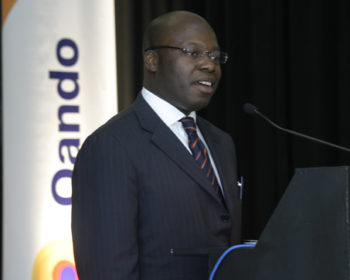
“If Nigeria does not kill corruption, corruption will kill Nigeria” is a quote attributed to President Muhammadu Buhari. Discussions about corruption in this clime have often been restricted to the public sector whilst we often turn a blind eye to the numerous illicit dealings in the private sector. Corruption is not limited to stealing public funds; it is an umbrella word for every form of illegality. Corruption in whatever form it may take must never be downplayed. The consoling factor is that Nigeria is not a lawless nation, which means that no matter how long corruption may last; there is possibility that it may eventually be exposed when the law finally catches up.
Oando Nigeria Plc has been in the news lately for allegations of breach of corporate governance and sharp dealings. Before the Annual General Meeting held on 11th September in Uyo, there was a petition before the Securities and Exchange Commission alleging of breach of corporate governance by the management of Oando. The AGM was marred by protest from aggrieved shareholders, but eventually Wale Tinubu was returned as the Group Chief Executive Officer amidst a palpable atmosphere of cynicism. After the AGM, shareholders from different parts of the country expressed their grievances at different fora, including the Nigerian Stock Exchange, Ibadan and the National Assembly, Abuja. No one really paid attention to their plight until the House of Representatives Committee on Capital Market and Institutions intervened in the matter and directed the Securities and Exchange Commission to investigate the matter. Some quarters were of the opinion that Wale Tinubu must have stepped on some powerful toes that are now ready to battle him to the end. No one really knows the truth in that theory because the allegations against Oando Nigeria Plc are grave, and deserves the intervention of regulatory authorities. This will serve as deterrence to other public quoted companies that are either involved in breach of corporate governance or contemplating it.
As a validation of the allegations levelled against Oando Plc by the shareholders, on the 18th of October 2017, the Securities and Exchange Commission released a circular in response to the petition written to it by Ansbury Incorporated. The regulatory body discovered among other things that Oando had breached the provisions of the Investments & Securities Act 2007. The company has also breached SEC Code of Corporate Governance for Public Companies and also have discrepancies in its shareholding structure. It was discovered that there were suspected insider dealings with related party transactions not conducted at arm’s length. Consequently, the body directed an immediate suspension of the trading of the company’s shares on the floor of the Nigerian stock Exchange. Also, the regulatory body has constituted a consortium of experts made up of auditors, lawyers, stockbrokers and registrars that will conduct a forensic audit on the company.
Based on the preliminary findings of the Securities and Exchange Commission, the forensic audit to be conducted can only ascertain the extent of the anomalies that have been uncovered in Oando. There is certainly no form of exoneration in sight. To further compound the woes of the company, the Johannesburg Stock Exchange has suspended trading of Oando stocks until further notice.
There have been debates in some circles as to why there has been no Nigerian company that has lasted 100 years. No one has been able to provide an empirically proven answer to settle the debate. However it is hard to separate the short lifespan of Nigerian businesses from the disregard for corporate governance code as represented by Oando. This is further compounded by the weakness in measures to discover and punish such impudence. As a result, many companies get away with abuse of the corporate governance processes, which eventually hurts the company and shareholders.
Nevertheless, SEC must be commended for this latest move. The body has shown that it has the interest of shareholders at heart and will always be available to protect their investments. Although the intervention came rather late considering that the Auditors of the company, Ernst & Young, have consistently warned of a material uncertainty in the company, which threatens its going concern. More so, how the management of Oando was able to get away with the alleged sharp practices for years remains a mystery. It is indicative of the need for SEC to tighten its processes and laws to uncover untoward practices in the capital market and business operations. This will instil confidence and encourage investment in the capital market and other sectors of the economy.
In the meantime, many analysts and stakeholders are interested in how SEC will handle the matter. It is heart-warming that the regulatory body has appointed Akintola Williams Deloitte to lead the team of experts to undertake the audit. It is also imperative that SEC makes complete transparency the watchword in its investigation in order to earn public trust and truly stamp its image as the protector of shareholders’ interest. This is a good development and the tempo must be sustained.